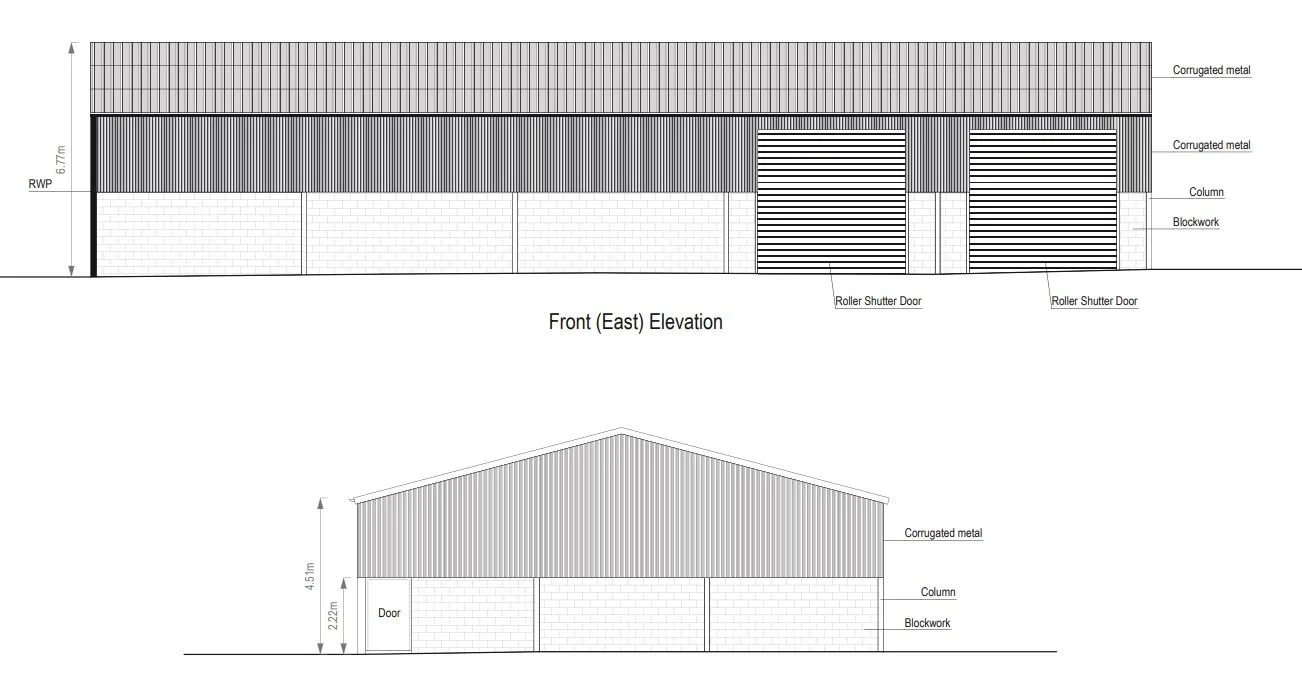Class R Prior Approval for a Barn Conversion in Maldon
We are delighted to announce that we have successfully secured prior approval under Class R of the GPDO for the change of use of an agricultural barn to a Class B8 (storage and distribution) use in Maldon, Essex.
This permission enables a redundant rural building to be brought back into productive commercial use—without the need for a full planning application.
What Is Class R of the GPDO?
Class R of the Town and Country Planning (General Permitted Development) Order 2015 (as amended) allows certain changes of use from agriculture to flexible commercial uses, subject to meeting specific criteria and conditions.
Permitted uses under Class R include:
Class B2 – General industrial
Class B8 – Storage and distribution
Class C1 – Hotels
Class E – Commercial, business or service
Class F.2(c) – Outdoor sport or recreation
Where the proposal involves more than 150 square metres of floor space, a Prior Approval application must be submitted to the local planning authority to assess the impact of the proposal in relation to:
Transport and highways
Noise
Contamination
Flooding
If these impacts are deemed acceptable, prior approval can be granted—giving the green light for the change of use without the delays or uncertainties of a full planning application.
Site Context and Background
The application relates to a former agricultural barn located in the rural area beyond Maldon, outside the defined settlement boundary, in a countryside setting. The building sits within a farmyard complex and is accessed via a single-track road.
Although historically used for agriculture, the barn had not been fully utilised in recent years, making it an ideal candidate for re-use under Class R.
Planning Issues Addressed in the Prior Approval Process
Transport and Highways Impact - The Parish Council raised concerns about traffic and highway safety. However, the application was supported by a clear explanation of how the new use would compare to the barn’s previous agricultural function. The also Highway Authority raised no objection, confirming that the proposal met all necessary criteria and posed no detriment to the public highway network.
Noise and Residential Amenity - The barn is remote from nearby dwellings—the nearest being approximately 179 metres away—so the risk of noise disturbance is minimal. The proposed storage use is passive in nature, involving only occasional loading and unloading. The Council’s Environmental Health Officer raised no concerns or conditions in relation to noise.
Contamination Risks - Previous applications at the site had confirmed the absence of contamination concerns. Since the proposal involves no excavation, groundworks or changes to drainage, the risk of introducing or encountering contamination is considered negligible. No objections were received from Environmental Health on this matter.
Flood Risk - The site lies within Flood Zone 3a, meaning it is at higher risk of flooding. A comprehensive Flood Risk Assessment (FRA) was prepared and submitted with the application. Mitigation measures were suggested. As a result, the Council concluded that flood risk was not a barrier to development, provided the mitigation strategy is implemented in full.
Outcome and Implications
Following a thorough assessment, the local planning authority confirmed that the proposal met all conditions and limitations of Class R and Prior approval was required and granted, subject to standard conditions.
The decision enables the applicant to proceed with the change of use and bring a redundant agricultural building into active commercial use, delivering economic value while preserving the rural character of the area.
Why Class R Is a Powerful Planning Tool
This outcome demonstrates the untapped potential of rural buildings and highlights how Class R can provide a practical, streamlined route to secure planning consent for commercial reuse.
Unlike full planning applications, the prior approval process is faster, more focused, and limits the scope for objections—making it an ideal mechanism for rural diversification and sustainable development.
Are You Considering the Reuse of a Rural Building?
If you own or manage an agricultural building that is no longer in full use, Class R may offer an opportunity to repurpose it for commercial activity—whether for storage, offices, or other business uses.
We can help you:
Assess suitability for Class R
Prepare a compliant Prior Approval application
Address planning risks, including highways, noise, and flooding
Get in touch today to explore how we can help you unlock the value of your rural assets.


